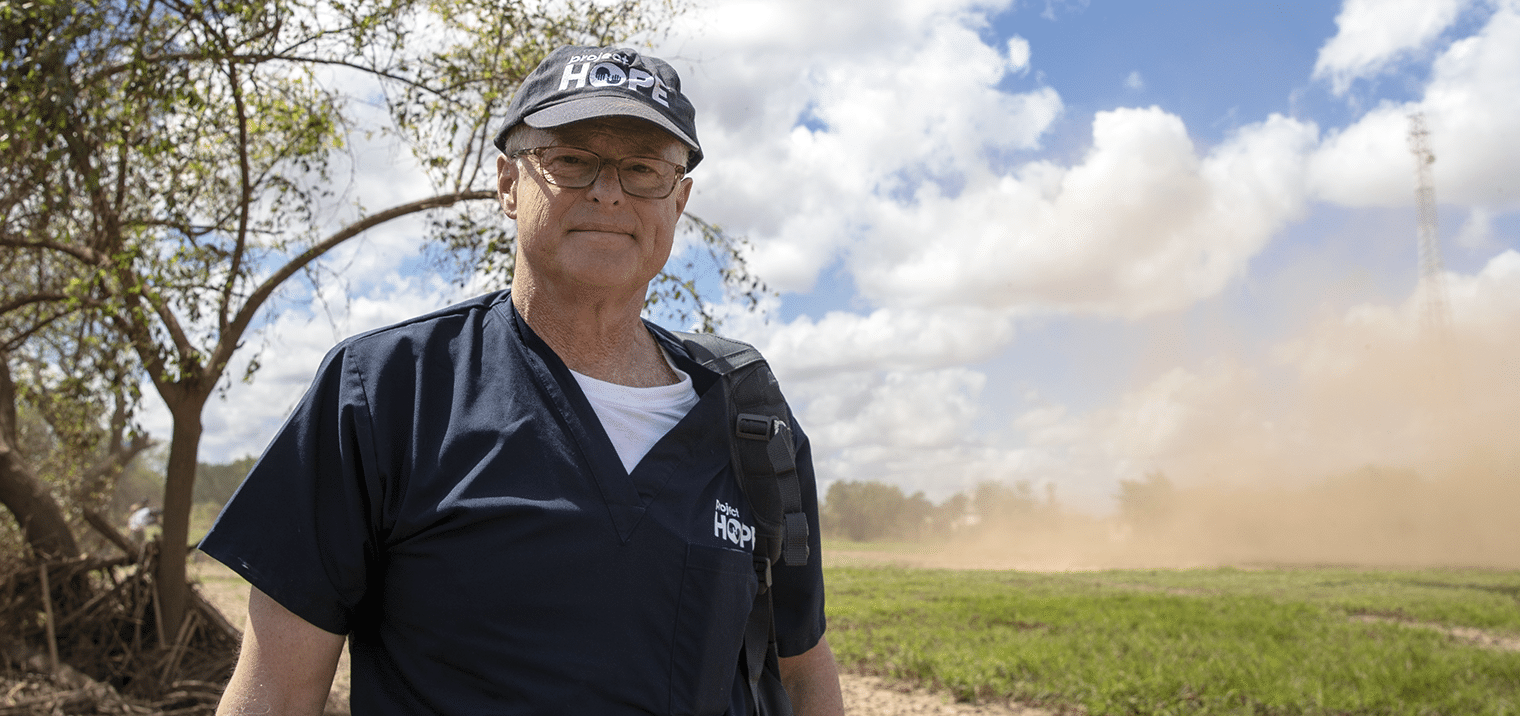
Q&A With a First Responder: Memories of Mozambique
A doctor recalls his experiences: “The world is too small to ignore.”
Dr. André Gvozden, a Brazilian pediatrician from Maryland, deployed to Mozambique with Project HOPE for two weeks as the country grappled with the immediate aftermath of Cyclone Idai — the deadliest storm to hit the country in 50 years.
Idai left millions of people in urgent need of food and clean water, shelter and medical care. More than 650 died in Mozambique, but a final death toll may never be known as many bodies washed away. Dr. Gvozden shares his experiences with us.
Q: What moved you to travel to Mozambique?
A: There are as many in your own backyard as there are in Mozambique. But when you are in medicine, you have the calling to help. And when you have the opportunity to help a large number of people in a short period of time – or when you feel like you are one of the few people who is willing or able to do it – it gives you a sense of fulfillment.
I felt invigorated knowing that I could help. Everyone can treat an ear infection or a sore throat – after doing that for 40 years I want to make a different kind of impact for people who really don’t take it all for granted. It’s always very rewarding to me treating people in areas that don’t have access to good medical care.
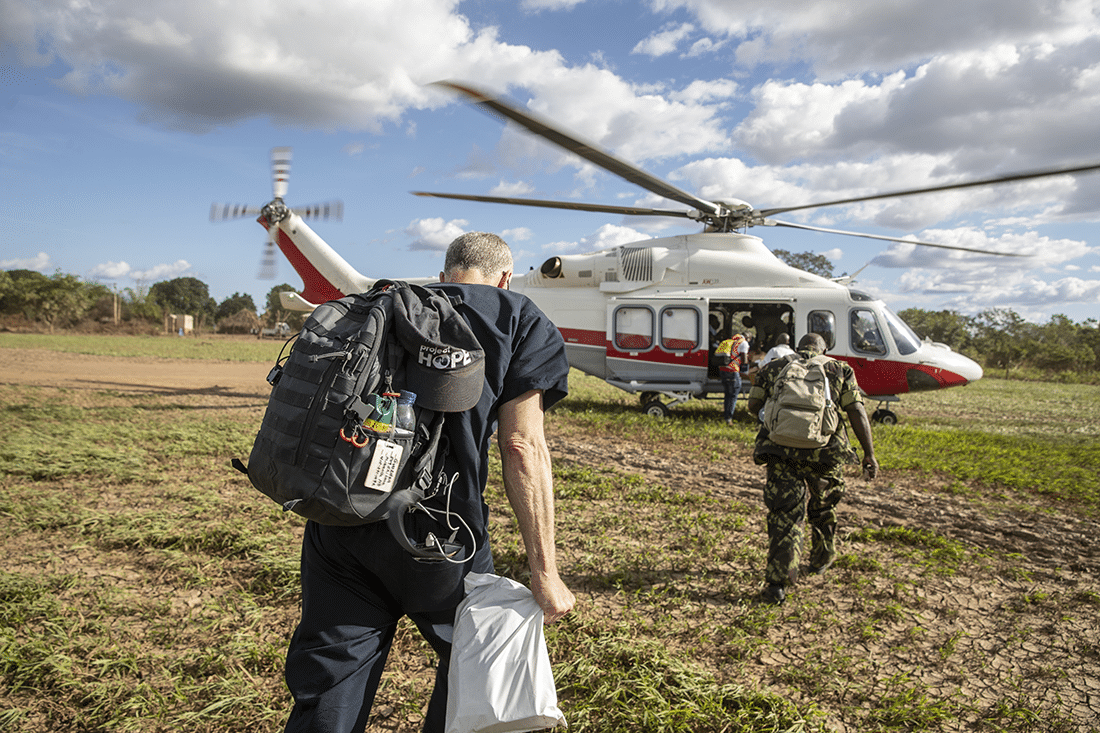
Q: What were your thoughts as you were packing for the trip and on the long flight?
A: When preparing for a trip such as this, there’s always an element of excitement not knowing what you’re going to encounter. What should I expect when I get there? Watching the news prepares me somewhat, seeing how the people in the area I am headed to are being affected.
Q: Did you notice other responders on any of your flights? What were they saying about the disaster?
A: When I finally boarded the plane for my 16-hour flight from New York to Johannesburg, I was a little surprised that I didn’t see other NGO volunteers. And after conversing with my fellow passengers, I was even more surprised that some people weren’t even aware of the disaster.
Q: What were your first impressions when you landed in Mozambique?
A: Once we reached the Beira airport, it was a madhouse – so chaotic. There were planes coming in with aid, taking off and landing, helicopters going up and down. It looked like a movie.
So many people from so many different NGOs were there, speaking many different languages. I had never been to an international disaster before, only domestic disasters, and this looked like a war zone.
There was also an overall feeling of a lack of communication and information. Many people arrived ready to help, but many also just didn’t know what was going on. The first few days were frustrating. We were ready to work but it was hard to find out how to help, where to help. All the NGOs were experiencing the same general frustration.
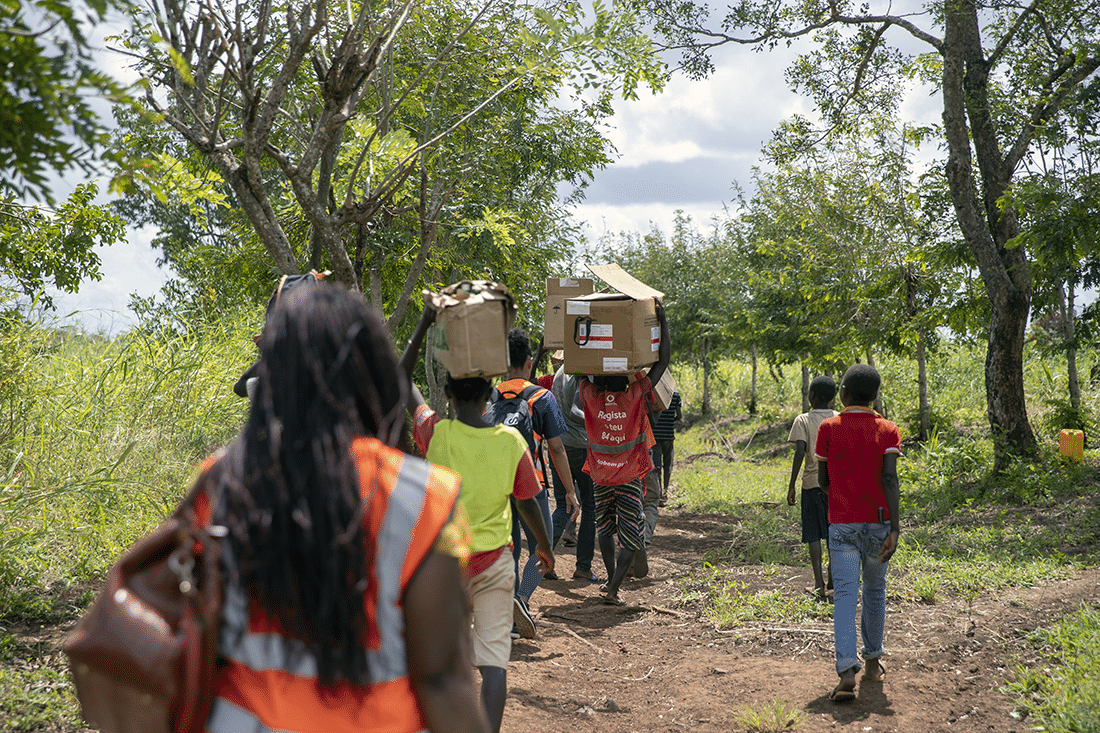
Q: What else did you experience?
A: Everywhere we went we were able to help in some way. One village was totally flooded: the health center, the schools, everything was a muddy mess, so in that village we ended up treating patients under a tree.
In another village we treated people in a school. We saw a lot of malaria. Every day was different. But basically, everyone had livelihoods destroyed. We also found some beautiful moments.
An older gentleman was smiling even though he had lost all his possessions – his entire house. He was now sleeping under the stars. But he hadn’t lost his dignity or his faith. He was still positive. All he wanted was his bible. It was very touching.
The children, of course, were dear to my heart. They were smiling and trying to go on with a normal life. They were still playing games and giggling and following us around.
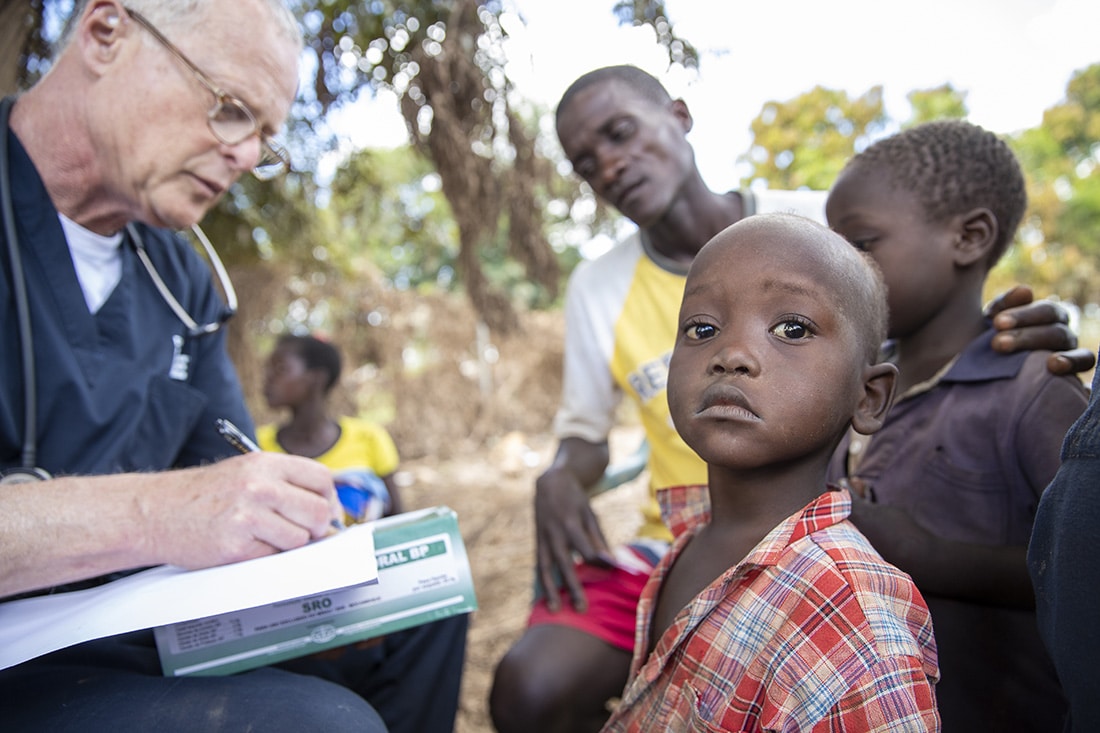
We witnessed big, beautiful skies. There’s no light pollution – I saw a night sky like I haven’t seen since childhood, including the Milky Way. That was gorgeous.
But we also heard horrible stories of personal loss. One mom lost all five of her children, from ages 2 to 12 – all of them drowned in floodwaters.
One small village was left totally submerged. They lost 183 people. Those who lived survived by climbing mango trees. For three days they lived in those trees with no food, only muddy water to drink. Children were starting to fall asleep in these trees, and then would fall into the water and drown. Some were falling from their exhausted parents’ arms as the parents fell asleep. Other parents, desperate to keep their children from the same fate, started tying their children by their clothes to the branches of the trees so they wouldn’t fall into the water when they fell asleep.
I also met a farmer who lost all his crops – eucalyptus crops that take 15 years to mature. Losing his business left 300 people whom he had employed without jobs.
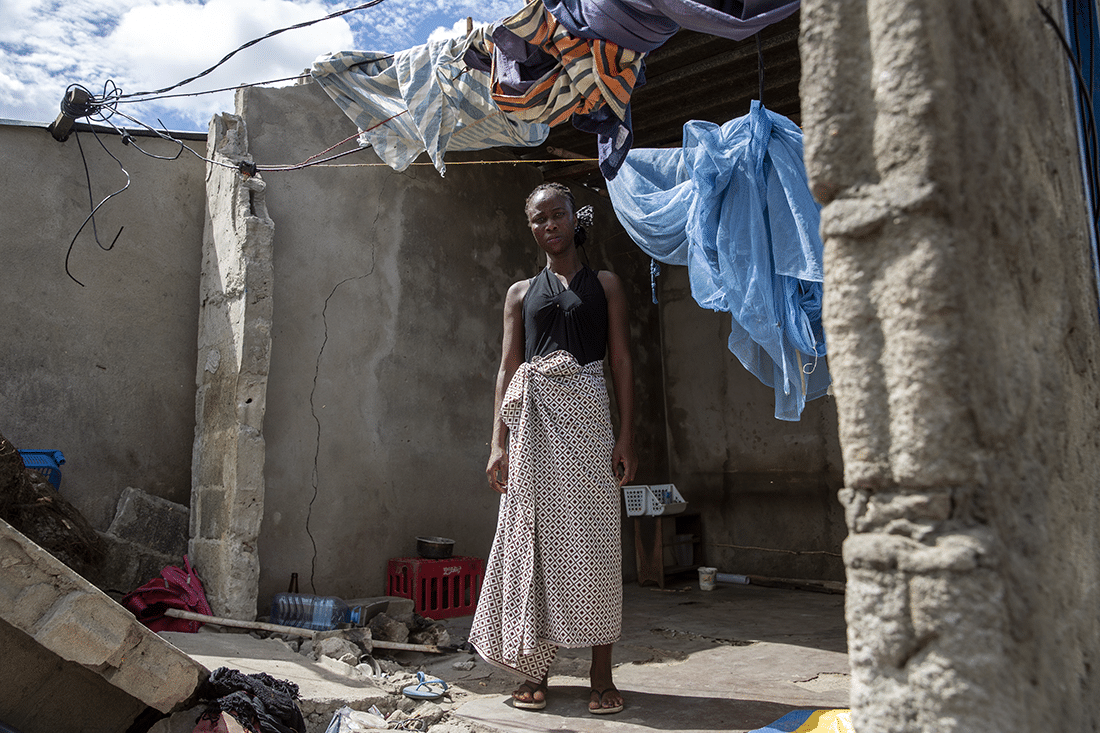
Q: How did you work through the chaos and confusion in order to quickly mobilize?
A: We worked with the Ministry of Health Advance Mobile Unit so that we were able to be in the forefront of relief efforts, including getting helicopter transportation.
Angel (Project HOPE’s international program manager Angel Jordanovski) was a great asset in coordinating logistics, and the fact that Edison (volunteer nurse Edison Rodrigues, from Brazil, who was part of Project HOPE’s team) and I both spoke Portuguese was a great advantage in securing government permissions and help with transportation.
We fit the bill. We spoke the language. We were flexible. We were mobile. We were willing to hop on a different helicopter every day.
We were able to communicate with the locals and help with translation for people who didn’t speak Portuguese, so we felt helpful and useful from the moment we arrived.
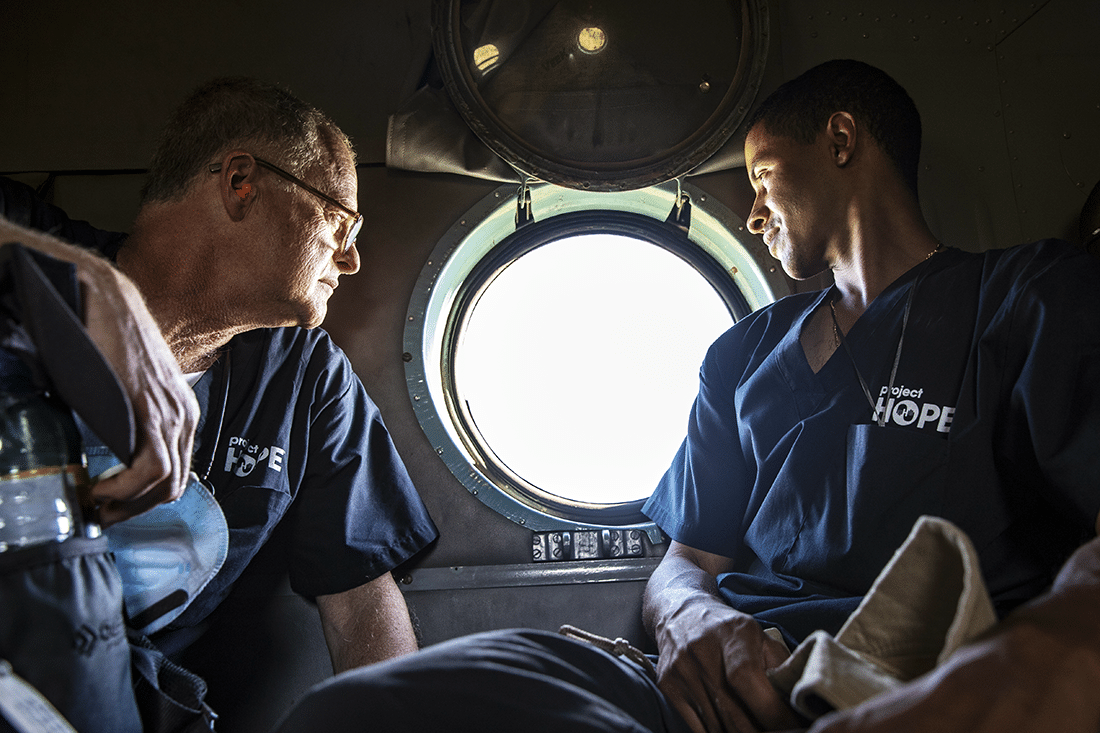
Q: What was the atmosphere like as you traveled around the country? Is there a particular individual or family who stands out in your memory?
A: When we first got there, an older man came up and started telling us all he had gone through. It was very heartfelt. He was hugging us, crying, thanking us for being there. It was very spontaneous and very touching.
I thought, “Oh, my goodness, you barely know me.” But I could tell right away what an impact we had; even when I hadn’t helped him directly, he was grateful.
People were desperate, lost, disoriented, confused, but they saw that besides delivering much-needed medical help, we were delivering HOPE. I know that sounds corny, but it’s true. It was just comforting to him to know that the world cares.
“People were desperate, lost, disoriented, confused, but they saw that besides delivering much-needed medical help, we were delivering HOPE. I know that sounds corny, but it’s true. It was just comforting to him to know that the world cares.”
As we continued to visit villages, we heard many sad stories, but also stories of incredible resilience. Listening to them made me rethink the that I think I have.
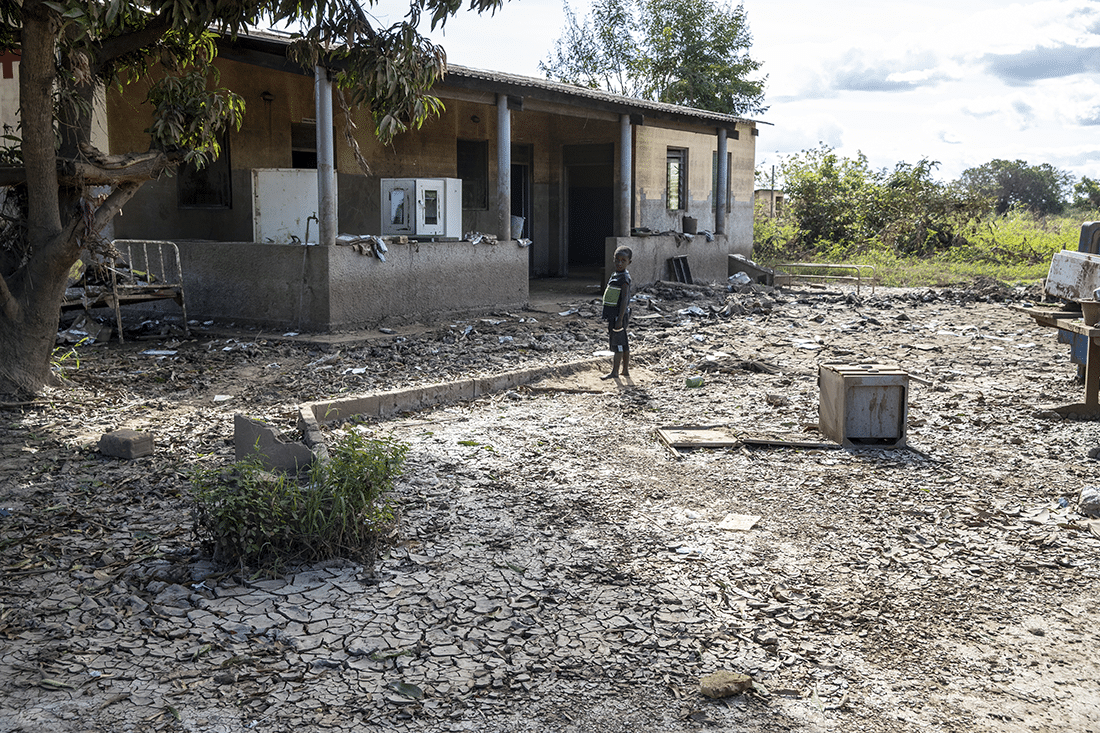
Q: You traveled by helicopter to hard-to-reach communities. What did you see from the air?
A: We actually saw some beautiful scenery from the helicopter: fishing villages with gorgeous beaches. People pay good money to see these views in Africa.
We had one scary landing, though. The people were very angry, practically rioting around us. We had no cell phone service to call for help and we were fearful. They wanted food, not medicine. Once the police came and calmed them down and they realized that we weren’t the government – we were from an organization and were there to help – then they were very nice to us. They were just projecting their anger and frustration at the government toward us.
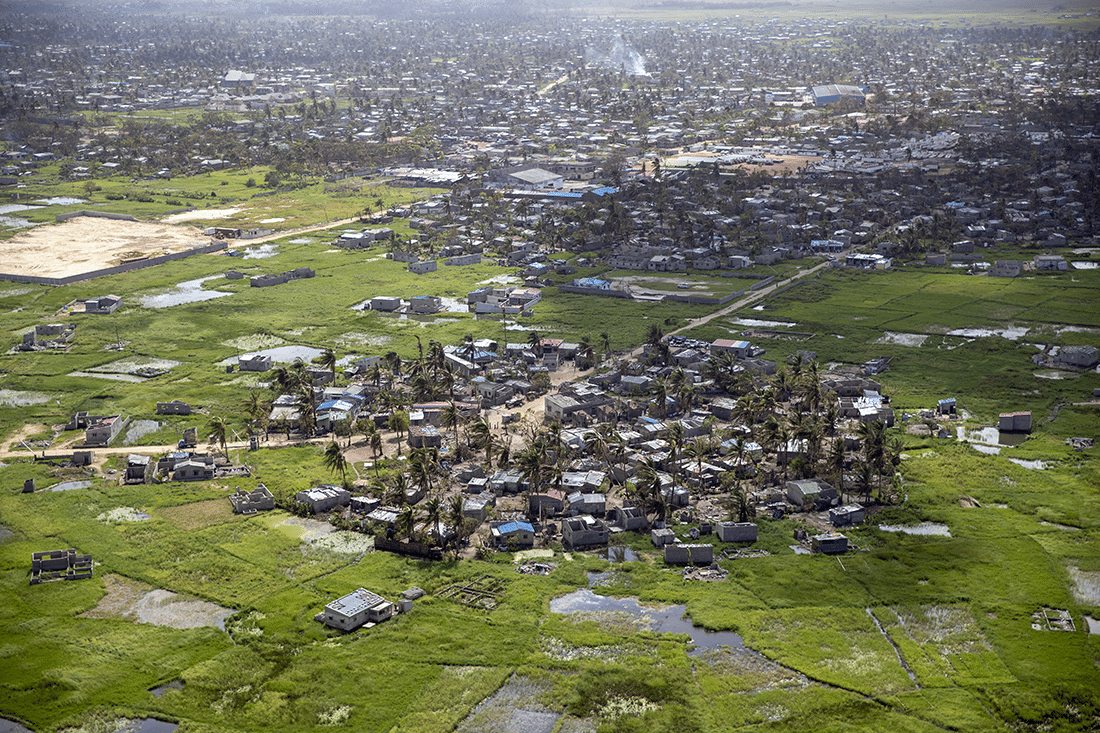
Q: What are your lasting memories from the experience?
A: There was so much beauty. There were many positive people who would do anything we asked.
It was an incredible experience. It changes your whole mindset.
The world is too small to ignore. We can’t ignore people who are suffering. These are my brothers – these other human beings – and we need to be there for them.
And as much as you give, you gain quite a bit in return.
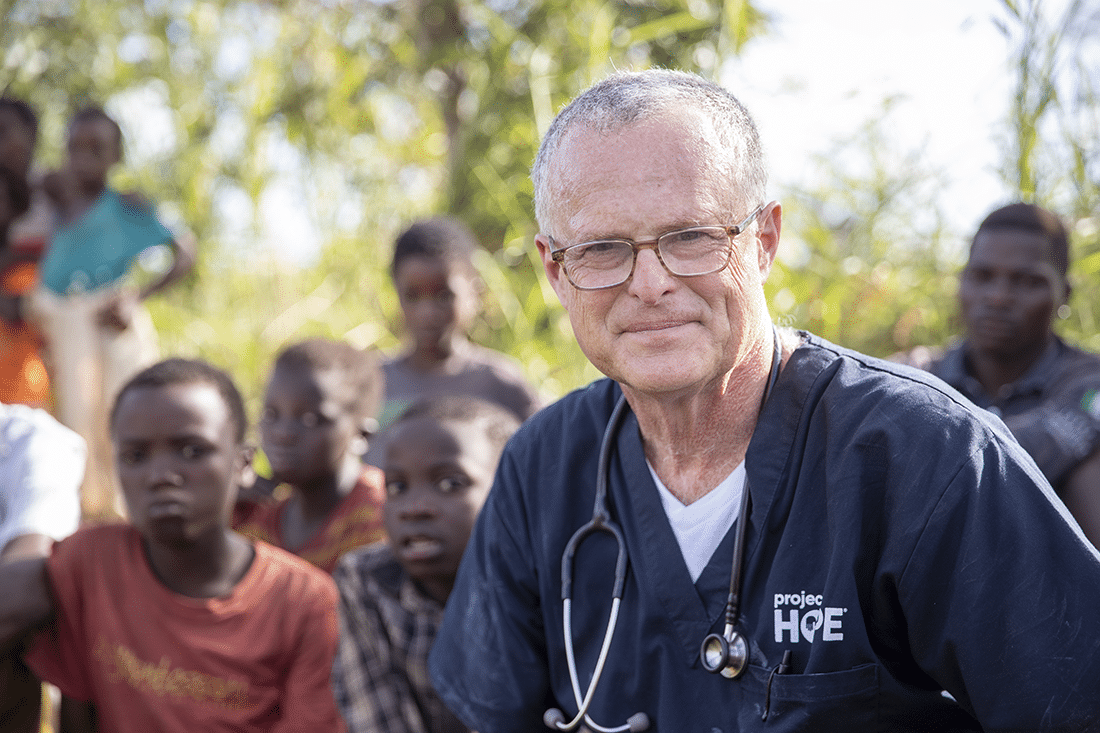
How you can help
Make a lifesaving gift to support our work now and for the future at projecthope.org/donate.
Are you a health-care or other professional who would like to learn more about volunteering abroad with Project HOPE? Learn more about our volunteer program and join our volunteer roster.
Stay up-to-date on this story and our lifesaving work around the world by following us on Facebook, Instagram, LinkedIn and Twitter, and help spread the word by sharing stories that move and inspire you.